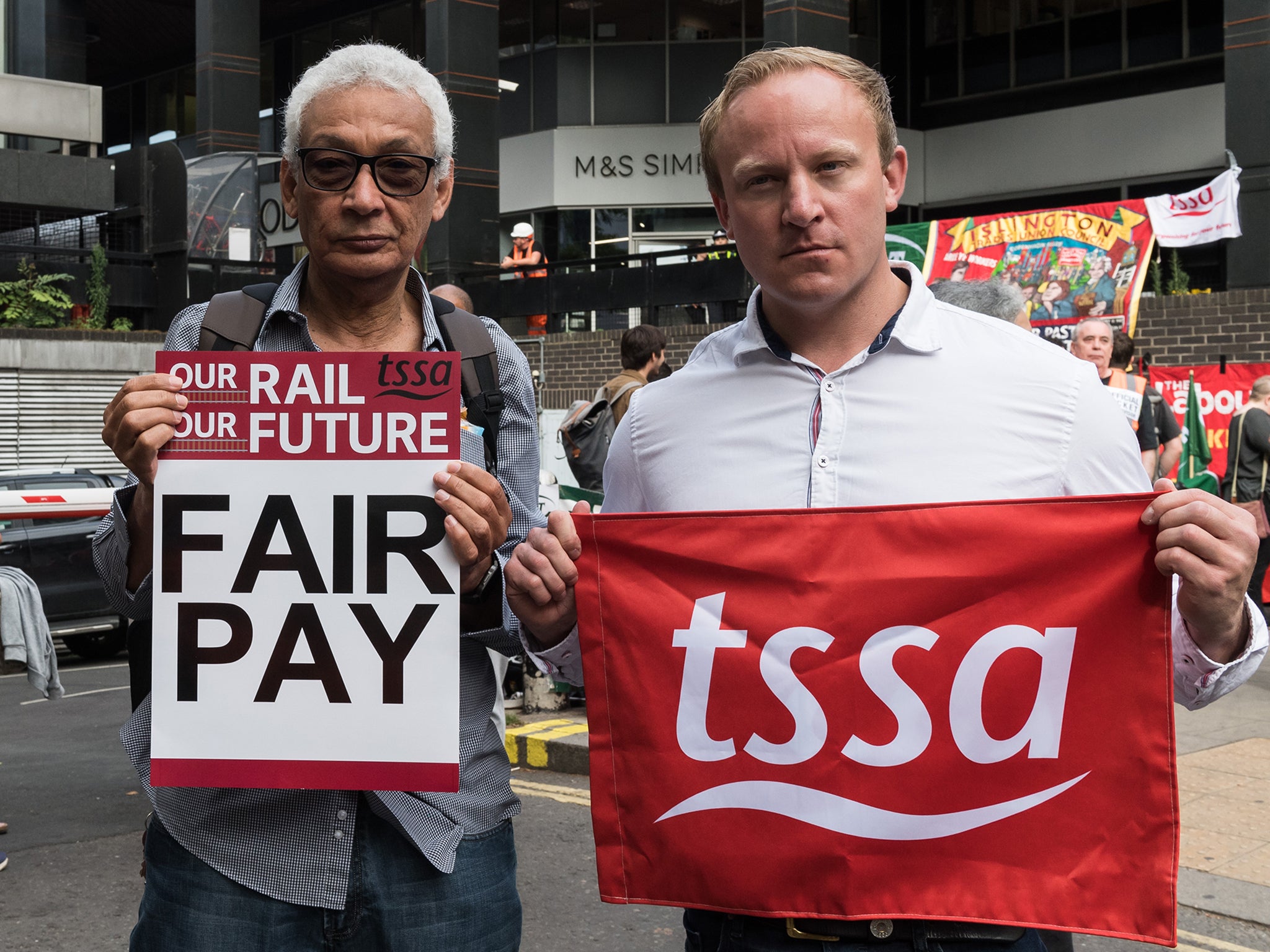No, Keir Starmer is not threatened by Sam Tarry or Labour splits over strikes
The Labour leader can easily tread the middle line over the industrial strife of the summer and autumn, writes John Rentoul


Sam Tarry, the former shadow transport minister, said of his sacking: “This wouldn’t have happened under Tony Blair.” Well, he was only 13 when Clare Short, the shadow transport secretary, walked out of a TV interview rather than answer a question about whether she supported the London Underground strike in 1996.
Of course it would have happened under Blair, because Blair took the line now taken by Keir Starmer that a government in waiting shouldn’t take sides in industrial disputes.
Tarry is trying to present himself as the victim of “a huge and catastrophic mistake”, namely Starmer’s ban on frontbench MPs from picket lines. But it won’t wash, because he made a mistake himself, which was to give media interviews without clearing them with his boss, Louise Haigh, the shadow transport secretary, or with the leader’s office. Not only that, in those interviews he supported an inflation-matching pay rise, when Labour policy is that it is up to unions and employers to negotiate.
Thus, although Tarry would like people to think that he was sacked for appearing on a picket line and “taking the side of the workers”, he was actually dismissed for giving unauthorised interviews, which is a matter of basic party discipline.
He is thus the latest of the self-purging Corbynites. For all the noise from the usual suspects about a witch hunt, and despite the urging of John McDonnell that his comrades should stay and fight, Corbyn supporters have one by one removed themselves from the front bench. Starmer has posed as the passive defender of the normal rules of party discipline as Jeremy Corbyn excluded himself from the Parliamentary Labour Party, Rebecca Long-Bailey sacked herself from the shadow cabinet, and a string of shadow ministers resigned on matters of policy.
After Tarry’s departure, I think there are only two members of the Socialist Campaign Group of MPs remaining on the front bench: Olivia Blake, a shadow minister for climate change, and Rachel Hopkins, shadow veterans minister.
So while it is true that many Labour MPs and party members are uneasy about Starmer’s policy of not taking sides in strikes, the problem is not as serious for the Labour leader as it seems. He can thread his way through this minefield, even as more strikes are threatened across the public sector in the coming months.
The reason is that Tarry and his supporters do not have an argument; they have what Nye Bevan would have called an emotional spasm. They will say that Labour was founded by the trade unions, as if that meant that the party must support any trade union in any dispute anywhere. Even when it is the RMT, a union that isn’t affiliated to the Labour Party, which its leaders regard as a capitalist sellout.
But they can rely on Labour people to be sentimental about the workers, and to be sympathetic to union demands for pay rises to keep up with inflation. Quite rightly, and in this respect reflecting wider public opinion. No one wants to advocate pay cuts, especially for workers engaged in what might be called public service.
On the other hand, public opinion – and indeed most of the Labour Party – knows that it is not fair that the biggest pay rises should go to the workers who have the power to cause the most disruption. Especially if they work in the public sector – or, in the case of rail, a sector that is mostly in the public sector and heavily dependent on public funding.
To keep up to speed with all the latest opinions and comment, sign up to our free weekly Voices Dispatches newsletter by clicking here
That is the strange missing link between the two controversies that are supposedly so damaging for Starmer. Many of those who feel most strongly about rail nationalisation also can’t see a picket line without wanting to be on it, but what is their theory of how workers in struggle against themselves as owners of their industry are going to bring down capitalism?
Starmer can tread the middle line. Today he said he understood the “frustration” of workers facing rising prices, and that “the Labour Party will always be on the side of working people”. That’s a meaningless phrase, unless it means Labour is opposed to the interests of pensioners and students, but it is good enough to get him through this supposed crisis.
So incoherent is the opposition to Starmer’s pragmatic middle position that not even Angela Rayner, Labour’s deputy leader, is trying to exploit it. It seems likely that Starmer will somehow survive this summer and autumn of industrial strife.






Join our commenting forum
Join thought-provoking conversations, follow other Independent readers and see their replies
Comments